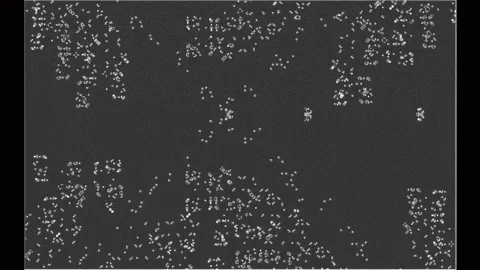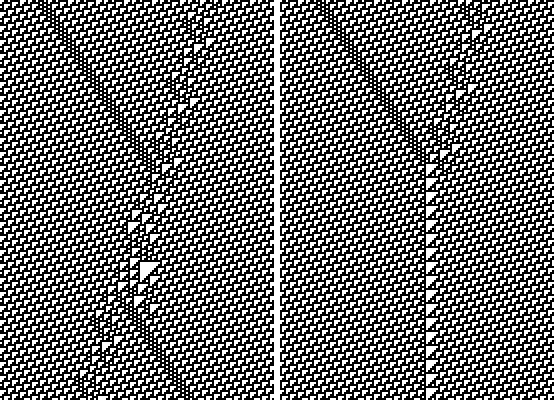How the Game of Life Changed How I See Real Life
Note: This essay was written with the help of a language model (ChatGPT) to improve clarity and flow, as English is not my native language. The thoughts, ideas, and perspective are entirely my own.

The Game of Life
When I was about 19, I wrote an essay a lot like this one. I’ve lost it since, but the core ideas stuck with me. They’ve quietly shaped how I think about reality, consciousness, and what it even means to “exist.”
It started when I discovered Conway’s Game of Life—not the board game with tiny plastic pegs and mortgages, but the one with a grid and a few simple rules:
- A living cell dies when it has too many or too few live neighbors.
- A dead cell is born when it has three live neighbors.
That's it. It's ridiculously simple. You start with some dots, press go, and suddenly… things happen. Shapes move. Patterns repeat. Gliders glide. Glider guns shoot. Chaos turns into order, and then back again. It was mesmerizing.
Then I learned: the Game of Life is Turing complete. That means, given the right starting pattern, you can make it do anything any computer can do. Add numbers. Simulate logic. Play Doom. (Okay, it might take until the end of the universe to render a frame, but still.) Even neural networks with superhuman intelligence are possible with enough space and time.
Evolution
People have even built structures inside it that read instructions from a “tape” (hello, DNA?), copy themselves, and mutate; the basic ingredients for evolution. Let it run long enough in a big enough space, and you might eventually get organisms with sensors, thoughts, memories.
Here’s where it broke my brain a little.
Let’s say such a creature does emerge—something that processes information, remembers things, makes decisions. Inside its little dot-world, it believes it's alive. It has a sense of “self.” It can sense its surroundings and knows about its past, present and future. To that creature, its reality feels as real as reality gets.
But.. when is it real?
- Is it when a computer actually runs the simulation?
- When someone writes down the rules of its universe?
- Or.. is it enough that its existence is possible?
I don’t know. For us, the world this creature lives in, is not real. For this creature, it is. This is something that still blows my mind when I really think about it.
I do think it says something about us too—that our reality might not be so different, at least in spirit.
We feel alive. We have memories, thoughts, plans. We build stories about the world we live in. But maybe that’s not proof that we’re “running” on anything. Maybe we, too, are just an emergent consequence of some deeper, timeless possibility.
Some say our consciousness is more than the sum of its parts. I don’t disagree. This essay is about how astonishing it is that such a “more” can arise from something so seemingly simple.
Just because you think you're real doesn't mean you necessarily need laws of nature—or even a hard drive—to back it up.
And it gets weirder. For example: the Game of Life has a speed limit—a “speed of light,” if you will. No pattern can move faster than one cell per generation. Sounds familiar, right? But here’s the kicker: that law isn’t written anywhere. It emerges from the basic rules.
Maybe that’s true of our universe, too. Maybe what we call “laws of nature” are just observable consequences of even deeper rules we can’t access directly. Just like a creature in Game of Life can never truly “see” an individual cell, only their effects, maybe we’ll never see the fundamental building blocks of our reality. Only their shadows.
Complexity from simplicity, computation from nature
Then there’s Rule 110. Even simpler, just a one-dimensional row of cells turning black or white based on their neighbors. Still (amazingly) Turing complete. Still full of emergent weirdness. And what struck me the most: Rule 110 showed me that computation can happen on something so simple, so basic, that it could run on something not even meant for computation. Like patterns in a leaf, waves in the ocean, or the way clouds drift across the sky. It made me think: maybe intelligence doesn’t need brains or computers—it just needs the right conditions.

Which makes me wonder: how many “universes” are out there, silently bubbling with intelligence, ideas, all playing out in some abstract mathematical space?
Maybe we’re one of them.
Reality, as we know it, could be the interference pattern of deeper laws from somewhere else—ripples from a cosmos we’ll never touch.